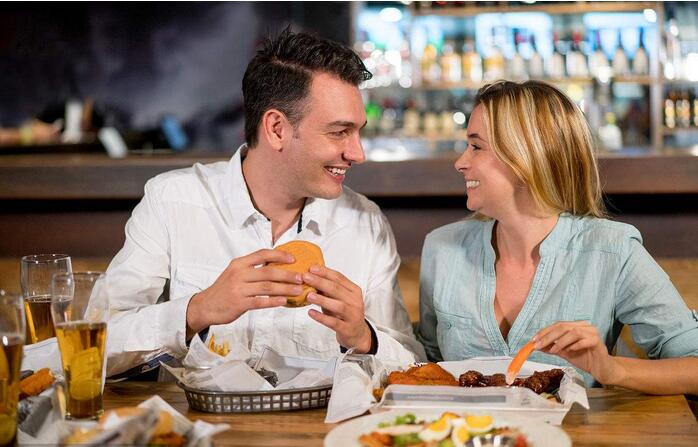The researchers believe the answer’s in the brain. Before you eat a bite, there’s a brain phase of digestive secretion.
研究人員認為答案在于大腦。當人們吃食物時,大腦中有一個消化分泌階段。
Seeing, smelling, or just anticipating a good meal prompts the brain to send messages to glands along the digestive tract.
視覺,嗅覺,或者僅僅是對美食的期待,會促使大腦傳遞信號到消化道的腺體。

“Hey you guys! Yummy morsels coming!” These happy thoughts prompt secretion of saliva, gastric juices and enzymes for digestion.
“嗨,伙計們,美食快來啦!”這些愉悅的思想促進唾液,胃液和消化酶的分泌來幫助消化。
In particular, acidic gastric juices are key to iron absorption. Without the acid, the body absorbs little iron.
需要專門強調的是,酸性的胃液是鐵吸收的關鍵物質。沒有酸,機體幾乎不能吸收鐵。
When you’re relaxed and enjoying your food, your brain primes your gut to absorb the most nutrients.
但人們放松下來享用食物時,大腦會促使腸道最大程度地吸收營養。
So there’s scientific evidence for something we’ve suspected all along-an appealing, leisurely meal is a lot more nutritious than unappetizing grub!
因此,該實驗結果也成了支持我們猜想的論據,即一餐令人食指大動,逍遙自在的美食遠比毫無吸引力的食物有營養。












